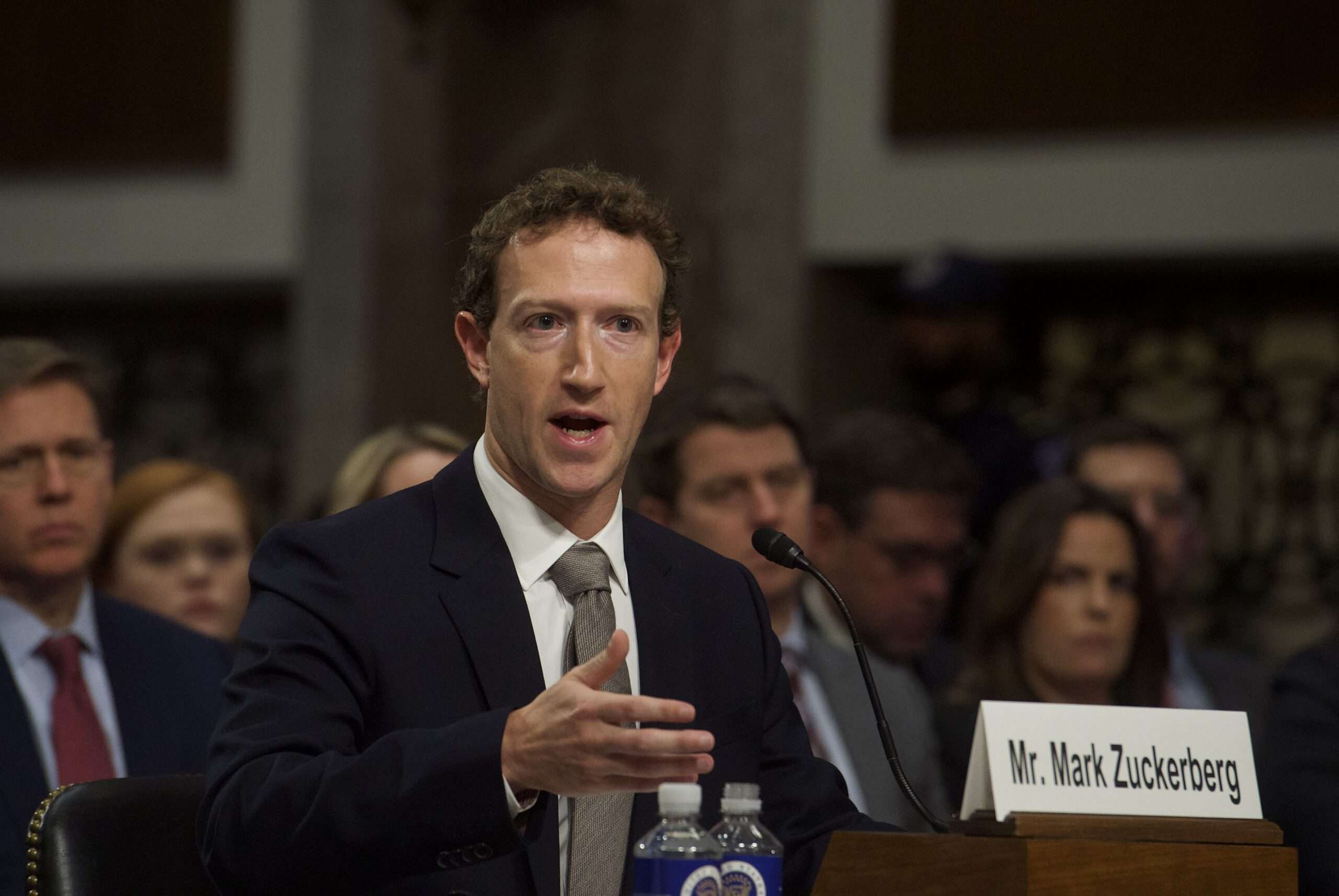Mark Zuckerberg, CEO of Meta, is making significant moves that appear to align more closely with Republican interests, potentially offering the GOP a substantial advantage as the 2024 presidential election approaches. These developments come after years of Republican dissatisfaction with Meta’s content moderation policies and signal a possible strategic pivot for the tech giant.
In recent weeks, Zuckerberg has garnered attention by supporting right-wing concerns about censorship and praising former President Donald Trump, whom he described as “badass.” These actions, despite Zuckerberg’s claims of neutrality, suggest a deliberate effort to address Republican grievances and reposition Meta within the political landscape.
On Monday, Zuckerberg sent a letter to the House Judiciary Committee, accusing the Biden administration of pressuring Meta to censor content during the COVID-19 pandemic. In the letter, Zuckerberg detailed how senior officials from the Biden administration repeatedly urged Meta to suppress specific COVID-19-related content, including satire, and expressed frustration when the company resisted.
Zuckerberg’s acknowledgment of this pressure, which he described as “wrong,” and his regret for not being more outspoken against it, quickly became a political weapon for Trump and other Republicans. Trump, in particular, used the letter to bolster his false claims that the 2020 election was stolen.
Trump amplified the letter on his Truth Social platform, declaring it as evidence of a broader conspiracy to suppress conservative voices and steal the 2020 election. The Republican-led House Judiciary Committee also seized on Zuckerberg’s revelations, posting the letter on social media and using it to attack President Biden and Vice President Kamala Harris, who is running for reelection as the Democratic nominee.
The committee’s response framed Zuckerberg’s admissions as a significant victory for free speech, reinforcing the GOP’s longstanding narrative of social media bias against conservatives. The letter comes amid a two-year investigation by House Republicans into the content moderation practices of major social media networks, further fueling their allegations of liberal bias.
Zuckerberg’s decision to address these issues in a letter to the House Judiciary Committee is particularly significant, given that the committee is chaired by Ohio Representative Jim Jordan, a leading figure in the Republican effort to challenge the legitimacy of the 2020 election. Jordan has been instrumental in promoting the false claim that the 2020 election was stolen, making Zuckerberg’s letter a powerful addition to the GOP’s rhetoric.
While it is common for social media companies to reassess their content moderation policies ahead of elections, Zuckerberg’s decision to publicly disclose these pressures aligns with Republican claims of censorship and government overreach. Despite a recent Supreme Court ruling that the federal government did not overstep in asking platforms to address potential misinformation, Zuckerberg’s letter reinforces the GOP’s narrative of social media collusion with liberal officials.
In his letter, Zuckerberg also acknowledged that Meta had, at times, removed or limited the spread of dangerous misinformation, particularly during the pandemic and in the context of the 2020 election. These actions, he noted, took place under both the Trump and Biden administrations.
Meta, along with platforms owned by billionaire Elon Musk, has recently rolled back many of the measures designed to curb the spread of misinformation. This includes allowing Trump to return to Meta’s platforms after being banned in the wake of the January 6th insurrection.
Zuckerberg’s stance on election-related issues has also evolved. He previously donated over $400 million to support election infrastructure, but after facing backlash from Republicans who accused him of influencing the 2020 election, Zuckerberg has decided not to make similar contributions in the upcoming cycle.
In his letter to Jordan, Zuckerberg emphasized his desire to remain neutral, stating, “My goal is to be neutral and not play a role one way or another—or to even appear to be playing a role.”
These statements, along with his recent comments in an interview with Bloomberg where he praised Trump’s resilience following an assassination attempt, suggest that Zuckerberg is making a concerted effort to align with Republican interests as the 2024 election approaches. As Meta continues to implement changes aimed at reducing the amount of political content on its platforms, it remains to be seen how these moves will impact the company’s role in the upcoming election. Zuckerberg’s remarks indicate that Meta may play a less significant role in the 2024 election compared to previous cycles, potentially reshaping the political landscape of social media.









